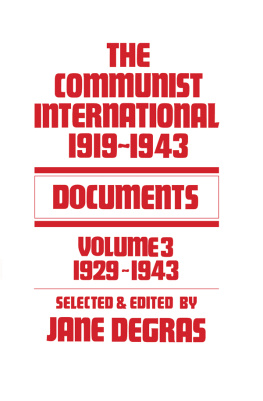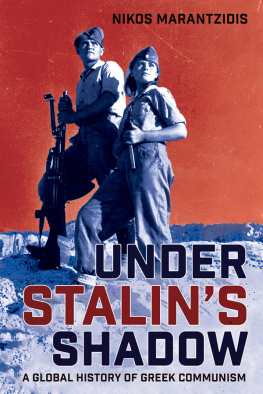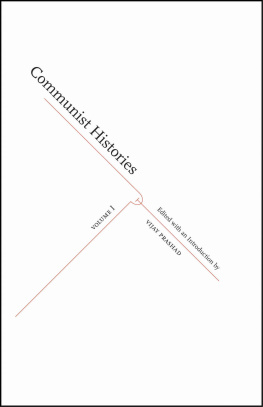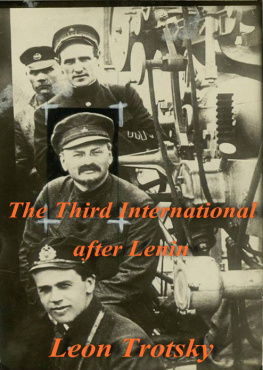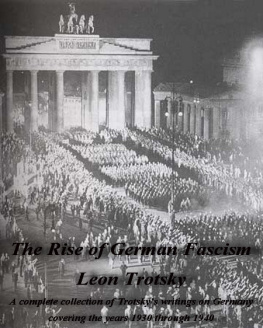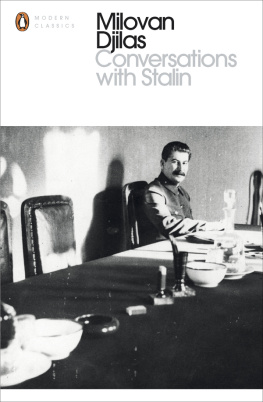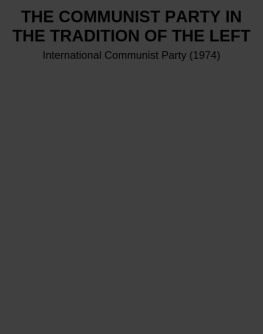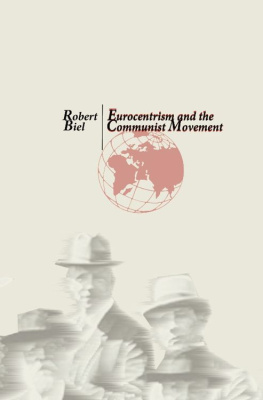First Published 1965 by
FRANK CASS AND COMPANY LIMITED
Published 2014 by Routledge
2 Park Square, Milton Park, Abingdon, Oxon OX14 4RN
711 Third Avenue, New York, NY 10017, USA
Routledge is an imprint of the Taylor & Francis Group, an informa business
All rights reserved. No part of this book may be reprinted or reproduced or utilised in any form or by any electronic, mechanical, or other means, now known or hereafter invented, including photocopying and recording, or in any information storage or retrieval system, without permission in writing from the publishers.
Transferred to Digital Printing 2005
The Royal Institute of International Affairs is an unofficialbody which promotes the scientific study of internationalquestions and does not express opinions of its own. Theopinions expressed in this publication are the responsibilityof the author.
ISBN 978-0-714-61556-1 (hbk)
THIS third and last volume of Communist International documents covers a period (192943) longer than the two previous volumes combined. Only-one congress was held in the fifteen years after 1928, and the proceedings of the four plenary sessions of the Executive Committee were not published in full. Little of the correspondence between the Executive and the sections was made public. There was no public Comintern statement directly concerned with the outbreak of the Spanish Civil War, the incorporation of Austria in Germany, the anti-Comintern pact, the Munich agreement, or the outbreak of war in 1939. Volume VI of the series Iz istorii mezhdunarodnoi proletarskoi solidarnosti, covering the years 193845, which has a total of 597 documents (in full or in part), includes four emanating from the Comintern, one of which is the resolution on its dissolution.
In the first six of the years covered here, known in the Comintern jargon of the time as the third period, the national parties, operating the class against class policy introduced in 1928, found themselves in sharp conflict with the organized labour movement and increasingly isolated within their own countries. They had for the most part adopted the new policy only reluctantly, and with the loss of many of their more moderate leaders who were unwilling to break completely with the socialist movement in which they had grown up. Although largely dictated by the struggles within the CPSU which accompanied the decision to proceed to forced industrialization and collectivization, the policy was also the outcome of disappointment at the failure of the united front policy which preceded it, just as the united front policy itself implied a recognition of the unsoundness of the assumptions on which Comintern policy in the first two years of its existence was based.
It can indeed be argued that with the adoption of the united front policy the Comintern abandoned not only its original strategy but the very principles underlying its existence, formulated in the belief that other countries besides Russia were ripe for revolution. The miseries of the war, the disorientation following defeat and the collapse of empires, the hopes and illusions cherished by millions amidst the subsequent chaos and nourished by events in Russia, were reason enough for this belief. Nor was it only the bolsheviks who held it; the same miscalculation was made by many eminent statesmen of the time; the spectre of revolution haunted the Versailles peace conference.
Within the Comintern, the failure of the revolution to spread beyond Russias borders gave even greater prominence to the position of the bolsheviks, already too powerful for the health of an international body. The national party leaders, seeing that only the Russians had been successful, were, by and large, willing to obey advice and instructions coming from Moscow, and having once abandoned their independence, were never successful enough in their proclaimed task to regain it. Unable to establish their revolutionary reality in their own right, they could assume a borrowed legitimacy by attaching themselves as willing and devoted auxiliaries to a regime which seemed to embody their aspirations and could therefore command their loyalty. Those who disputed the instructions and rejected the advice either resigned or were expelled, but no secessionist group ever managed to establish and maintain a viable opposition party. Quite apart from the material and organizational support offered by Moscow to its chosen subordinates, it was the uncritical and emotional allegiance of the rank and file that condemned the secessionists to failure. Within the party they had been judged and sentenced, if not tried ; outside it they were isolated.
As the original vision faded, and the communist parties reshaped their strategies, the Comintern lost any stable criterion by which to judge the correctness of any particular policy. A policy became correct merely by virtue of being adopted, and a deviation was no longer a departure from an accepted principle, but a label which could be applied as the occasion demanded; thus there could be left-right deviations, opportunist-adventurist deviations, and Trotskyist-Bukharinist deviations. That these labels were endorsed by the sections indicates the decline in the quality and stature of their leaders. The humiliations to which they were subjected, and the ruthlessness with which they were discarded, reflected both the loss of the original impulse and the irrelevance of their policies to the situation in their countries. Even where it might be cogently argued that the policy was related more nearly to domestic conditions, as in the proposals to organize industry and the Army in Spain during the civil war, its effectiveness and appeal were undermined by the Russian style of its application. This aspect of Comintern discipline is revealed most clearlyif least harmfullyin the repetitiveness and rigidity of the verbal formulations used in its literature, which give it its deadly dullness. Even slight departures from the approved form of words could be and were treated as deviations.
The change to class against class, however useful the Soviet leaders may have found it for their own domestic purposes, had a crippling effect on the Comintern sections because of its irrelevance to the situations facing them. Once having eliminated those leaders who were bound in one way or another to the defeated group within the USSR, the Russians no longer needed to pay much attention to the International, preoccupied as they were with the revolution from above at home and the immense strains and difficulties to which it gave rise. They assigned to work in the ECCI figures of second or third rank. Public statements declined rapidly and steadily in number, and it is difficult to avoid the conclusion that the Soviet leaders had lost interest in the Comintern long before they brought it to an end. Moreover, debate and persuasion, which would have required genuine intellectual capacities and might have put a severe strain on discipline, were no longer essential. Moscows authority sufficed. This was shown most strikingly in the reversal of policy on the outbreak of war in 1939, which entailed the denial of everything the parties had been saying for the previous five years. Even more telling in this respect was the decision to dissolve the Comintern. This too was accepted without challenge; the dissolution can indeed be regarded as the most extreme expression of the control exercised by the Russians over the other parties.

